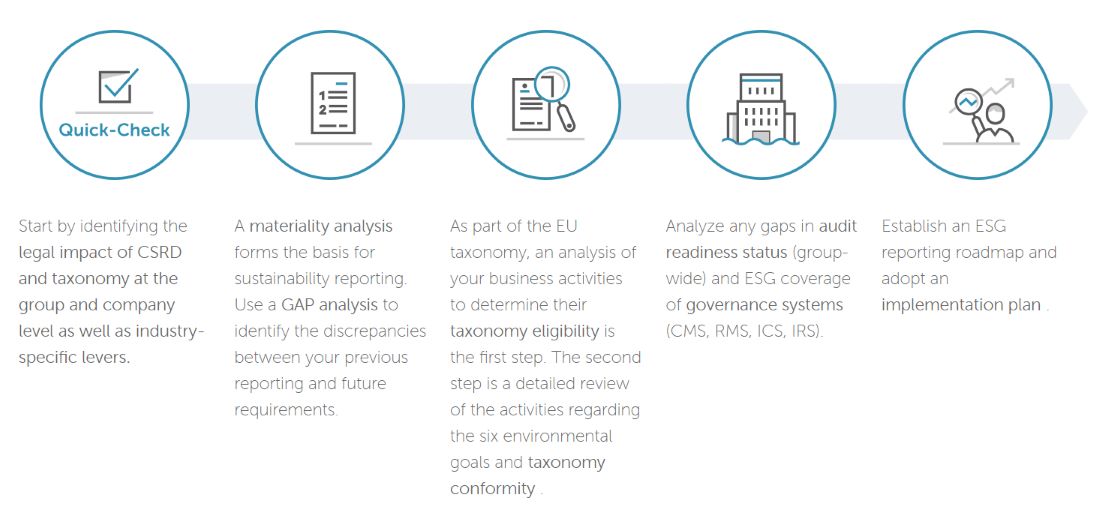Our reporting offer - we advise and support you in every step

Implementation of the CSRD (Corporate Sustainability Reporting Directive) – with sustainability experts from VGD Slovakia. We are ready to assist you with a wide range of services – from setting up your ESG strategy to auditing the information included in your ESG report.

The pan-European directive CSRD came into effect at the beginning of 2024. In practice, this means that companies will be required to disclose detailed sustainability information in their annual reports, which will also be subject to verification by auditors. The changes are being implemented gradually according to the size of the companies:
Mandatory reporting obligation for the annual report for the year 2024:
Mandatory reporting obligation for the annual report for the year 2025:
However, the adopted directive includes one fundamental aspect – the aforementioned companies will also be required to report information for their entire supply chain. To fulfill their obligations, they will regularly require necessary and accurate information from their business partners. If they cannot obtain this information from their current partners, they may prefer others.



The directive is the culmination of several years of efforts to increase the promotion of green information reporting.
The increased effort put into the area of sustainability can be (especially for the increased generation of the young generation) a decisive effort when choosing an employer, or it can contribute to the motivation of current employees to stay in your company.
The guiding pillars of the directive are the conclusions of the Paris Agreement and the Green Deal, which set the goal a few years ago to prevent warming and create a climate-neutral community.
The directive itself does not mandate that your company be "green." It's about comprehensive assessment and reporting of the impacts it has in the ESG areas.
A thorough analysis of a company's ESG situation can truly help identify unknown risks and opportunities arising from global rapid changes.
Companies themselves decide which sustainability areas are important to them. They will focus on these areas and set measurable indicators to assess their progress over time. This decision will result from the newly introduced concept of dual significance assessment.
Proper handling of the ESG topic can significantly improve a company's reputation and provide it with a strategic advantage.
The introduction of stricter sustainability requirements will stimulate demand for green products and services.
The implementation of CSRD may require companies to reorganize and adapt their internal processes.
An often overlooked part of CSRD is the EU taxonomy, which provides a classification of environmentally sustainable activities and aims to guide investments into green projects.
Given the deteriorating sustainability situation (especially environmental), it can be expected that pressure to tighten compliance will increase from regulatory authorities as well as from customers.